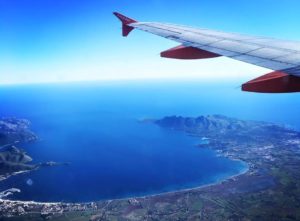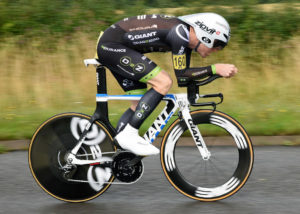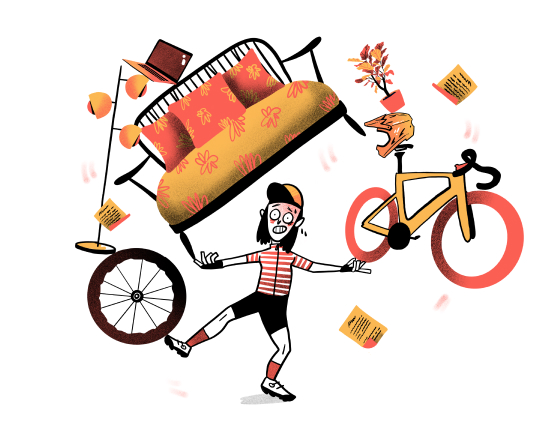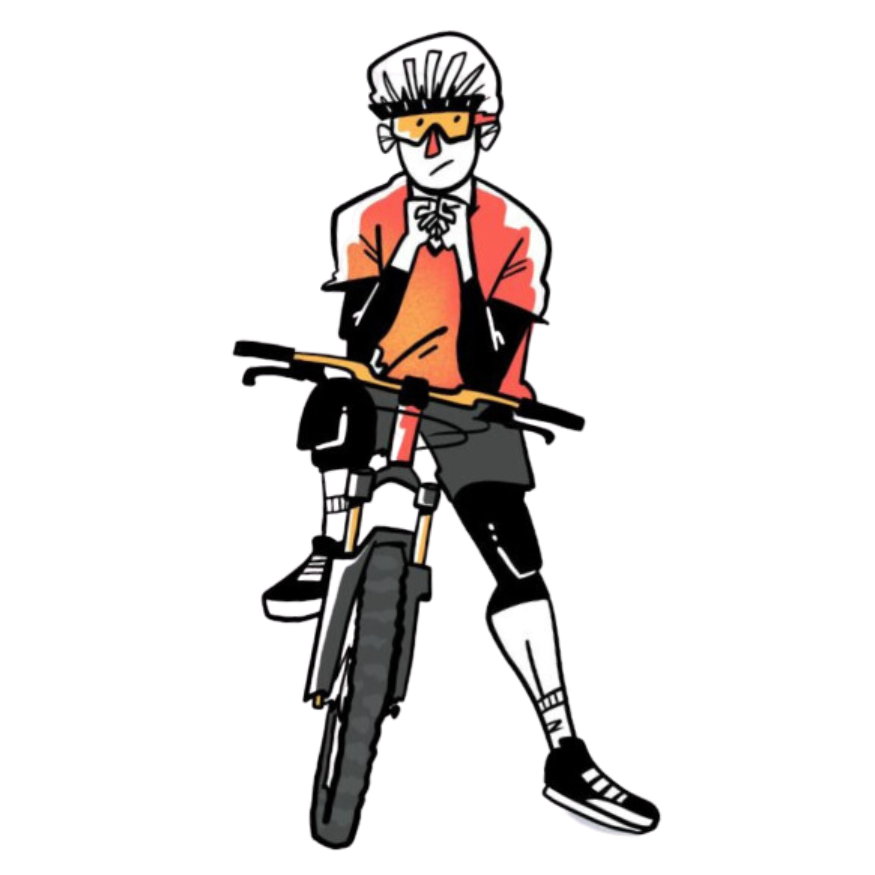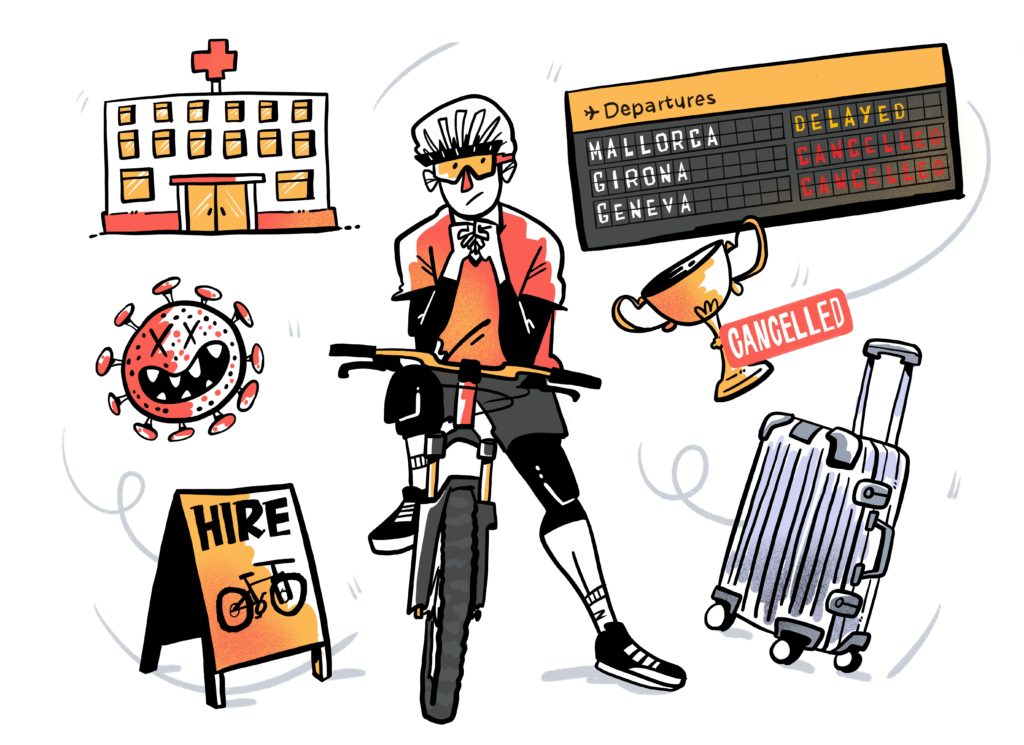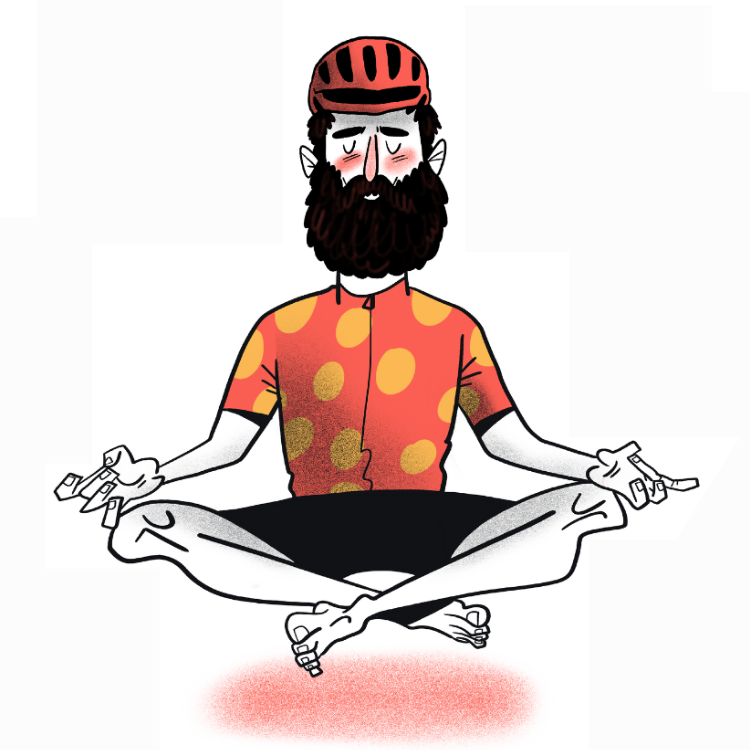In a typical professional cycling race, there will be one sure-fire way of winning and somewhere in the region of 200 ways to lose. But that’s hindsight talking through Captain Obvious. Really, we all know that there are plenty of ways to come out on top, and if this season is anything to go by, it would seem that the colour blue is a key ingredient.
The two most successful – most ‘winningest’ – teams of 2019 so far are the royal hued Deceuninck-Quick Step and the easy-on-the-eye sky blue of Astana. If you expand the gamut to include turquoise, then third-ranked Bora-Hansgrohe also qualifies. It’s even evident in the women’s peloton; early season dominance has been wrestled from the clutches of Boels-Dolmans and the spoils distributed more evenly with the blue-tinged riders of Trek-Segafredo and WNT-Rotor picking up more than their share. Blue, for the moment at least, is the colour of victory.
What these teams all have in common is an enviable consistency that seems ever more unassailable the longer it goes on. The more we see blue at the pointy end of bike races, the harder it will seem for others to win, the weaker their rivals’ grip on opportunity.
Look at Julian Alaphilippe’s season so far. Until very recently, he had not come away empty handed from any race he’d started, whether that be a stage (or two) at the Vuelta a San Juan or his debut outing at Strade Bianche. He even managed to squeeze an uphill sprint victory out of Itzulia Basque Country before crashing out. At this point in his still young career – he’ll be 27 in June – it’s obvious that Alaphilippe is an absolute machine who can contest a high calibre sprint just as confidently as the Tour de France King of the Mountains jersey. And it’s not just him; the versatile Frenchman is a pretty accurate singular representative of his team as a whole.
Deceuninck-Quick Step has been dubbed a super-team by cycling media and for good reason. No matter the race’s UCI classification, its location, nor its characteristics, the Belgian-registered outfit will field a team stuffed with leaders. While another team might pin their hopes on a single rider – say, Peter Sagan at Bora-Hansgrohe – DQT routinely launch a quintuple threat, e.g. Alaphilippe, Gilbert, Lampaert, Štybar, Viviani (Milan-Sanremo). Far from spreading themselves thin, this strategy has worked for them time and time again. Winning breeds winning, so they say, and it’s certainly proving a fertile ground for developing young guns.
Many neo-pros barely see the light of day in the bigger races, their jobs restricted to bottle carrying when not doing their utmost simply to stay with the peloton. However, the freshman and sophomore classes of the Quick Step Academy have been all over the 2019 season, even at some of the biggest and most revered races. We can only imagine how different their neo-pro years might have been without the positive, celebratory, winning atmosphere that must be almost visible on the team bus by now.
View this post on Instagram
A post shared by Deceuninck – Quick-Step Team (@deceuninck_quickstepteam) on
The under-25 division of Deceuninck-Quick Step, which includes Enric Mas, Fabio Jakobsen, Kasper Asgreen, James Knox, Rémi Cavagna, Mikkel Honoré, Álvaro Hodeg and Remco Evenepoel (19!), have all found themselves in the veritable Ivy League of road cycling. What’s more, they have all made their marks already with a combined 19 wins since the beginning of 2018 and countless more top-10 finishes, not to mention their roles in helping team leaders reach the podium’s top step. If winning breeds winning, then they find themselves in the very best incubator that professional cycling has to offer.
Speaking of breeding, and just to finish things off with a flourish befitting this rider, we can’t not mention Mathieu van der Poel, cycling’s homegrown superstar. No, he’s not wearing blue – although it does feature in his Dutch national champ’s jersey – but if you wanted to find an example of good breeding in our sport, he is the first and last place you should look. With former French pro Raymond Poulidor for a grandfather and Amstel Gold Race winner Adri van der Poel for a father, Mathieu van der Poel is no stranger to winning. It is in his blood, literally. He burst onto the road calendar off the back of a remarkable cyclocross season (32 wins from 34 starts plus the CX World Championship title) and powered into a condensed schedule of Spring Classics. When he wasn’t taking emphatic wins at races of all shapes and sizes, he was battling adversity to animate some of the biggest classics, all before completing his road season with the very goal he started with: to win the Amstel Gold Race in the red, white and blue of Dutch national champion. Achievement unlocked. Next up, MTB Olympic champion…no kidding.
View this post on Instagram
You’ve gotta want it more than your last breath #amstelgoldrace
A post shared by MVDP (@mathieuvanderpoel) on
So basically, to have the best chance of success, you need to be in a team of winners if you’re not already a winner yourself. It’s the same for you and I who watch the races rather than partake in them. Surround yourself with like-minded people who together foster a positive environment in which to train, to race, and to grow.
It pays to be blue…or Mathieu van der Poel.
Words by Emma Nicholson.
To track my own cycling activities, find me on Strava. Or follow me on Instagram and Twitter for day-to-day ramblings.




